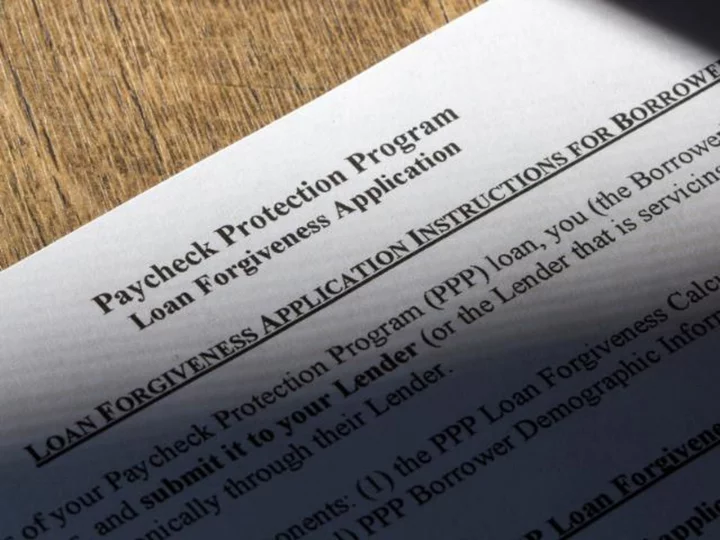The Small Business Administration distributed more than $200 billion in potentially fraudulent Covid-19 relief funds, according to a federal watchdog.
The findings, released Tuesday by the SBA's inspector general, underscored how the emergency funds from the government designed to combat a once-in-a-century pandemic became a magnet for fraudsters.
At least 17% of the $1.2 trillion distributed by the SBA was wasted in fraud, the report found.
To put it another way: The SBA paid out approximately 4.5 million potentially fraudulent loans and grants, amounting to 21% of the total 22.1 million loans and grants that were disbursed.
The fraud estimates focus on two programs rapidly launched by Washington after the health crisis began: the Economic Injury Disaster Loans (EIDL) and the Paycheck Protection Program (PPP), which provided forgivable loans to small businesses.
Most of the fraud apparently happened through the EIDL funds, with the inspector general estimating more than $136 billion of fraudulent activity in that program. Another $64 billion of potential fraud was found to have been distributed in PPP funds.
The EIDL funds provided long-term, low-interest loans for eligible small businesses. Unlike the PPP loans, business owners are required to pay the EIDL loans back and payments started to become due earlier this year.
PPP was the more popular program, and a key part of the federal government's response to the pandemic. In the early months of 2020, it was designed to get money out as quickly as possible to small businesses who were struggling to pay their employees. Small business owners who used the money for a qualifying reason, like payroll, would see their loan forgiven.
While the program successfully helped many companies pay workers during the pandemic, it was plagued by questionable lending and rampant fraud. Both the SBA and lenders were under incredible pressure to get a massive amount of money out within a matter of weeks when the pandemic first hit.
Between a rocky rollout, regularly shifting rules and guidance, and an initial round of funding that favored small businesses with long-term relationships with lenders, there was no shortage of criticism from businesses, banks and lawmakers alike.
Disclosures by a series of large public companies and well-known brands, ranging from restaurants like Potbelly, Shake Shack and Ruth's Chris Steakhouse to the NBA's Los Angeles Lakers, also raised pressure on the Trump administration as it worked through the program's earliest days.
In this week's report, the inspector general pinned the blame on lax safeguards at SBA.
"The agency weakened or removed the controls necessary to prevent fraudsters from easily gaining access to these programs and provide assurance that only eligible entities received funds," the report said. "However, the allure of 'easy money' in this pay and chase environment attracted an overwhelming number of fraudsters to the programs."
The inspector general's office said its investigative work has resulted in 1,011 indictments, 803 arrests and 529 convictions related to Covid fraud as of May — and more are likely coming as investigators comb through tens of thousands of leads. To date, the agency has recovered nearly $30 billion in funds, according to the report.
— Katie Lobosco contributed to this report.

